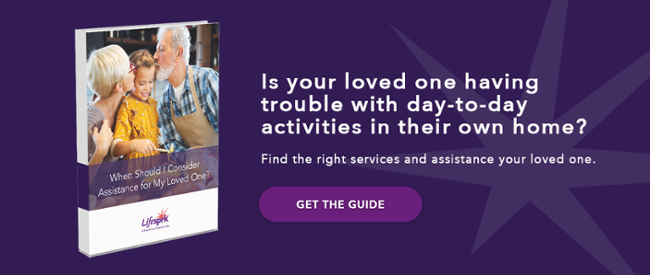
Make sure you don’t miss a thing! Sign-up for our Seek On blog and stay connected with tips, resources and great articles all to spark your loved one to keep them healthier and independent longer.
As a first timer to the world of in-home care research, you may be overwhelmed by the amount of resources available. Where exactly do you start and what should you look for? Based on more than 175 years of combined experience in the senior and home care industries, Lifesprk’s team of experts believes these three questions are key starting points as you explore options for your aging parents. Why these three? Because these are the questions many people don’t think to ask home care providers early on but tell us they wish they had.
1. What is the RN role for home care?
Is the RN role just for supervision of caregivers/home health aides or is it more focused on goal setting and truly coordinating care for your loved one? This makes a tremendous difference in the care that you will receive. What you may not realize initially is that for many home care agencies, nursing supervision typically means supervising the aides who provide your loved one’s care and does not involve medication management, coordination of care, or proactive planning.
In fact, a growing body of research is finding that care coordination is the critical component for success in preventing future crises for seniors. As one Lifesprk client Marsha shared, “My recommendation would be to get a nurse care manager involved earlier.” It gives you someone to turn to 24/7 with questions and concerns, creates a partner who will work with you and your loved one toward your loved one’s goals and enables your loved one to begin to build trust with someone who truly wants to help them maintain their control and independence. A nurse care manager can help outline/document your loved one’s full spectrum of personal goals, beyond just the medical ones – is mowing your lawn or going to the weekly knitting group important? Does your loved one need help with medications? Would it help to have a professional accompany your loved one to doctor appointments, asking the right questions and ensuring consistent follow-up and communication? Home care should be more than just ‘physical care’ – it should take into account every facet of your loved one’s life and help her live it, on her terms.
2. Total cost vs hourly cost and guarantees for home care
What exactly are you paying for? People often look at the hourly rate and make decisions on that alone. The key is to look at the total cost – what does the service cost you over time? Does it work toward increasing your loved one’s independence and reducing the overall need for care? Do the services work to proactively prevent future crises – that will save your loved one thousands in future financial costs as well as protecting their independence and quality of life. Is there a guarantee that no shift goes unfilled? A lower cost option may not truly be a bargain. It won’t matter what a provider charges if they can’t fill your shift. And lower cost providers may have trouble keeping consistent staff which may disrupt your own schedule and responsibilities every time there’s a gap.
3. Proven results for home care
Another aspect of the total cost is proven results. Does the provider have measurable results that demonstrate the impact they make. Positive testimonials are one part of the picture but check for quantitative results that demonstrate their success with many clients, not just one or two. What’s their client satisfaction rating? Are they measuring quality of life indicators? For what percentage of clients are they able to reduce ER visits and hospitalizations for? Knowing this will help eliminate unplanned hospitalization and dramatically reduce your long-term care costs. Most importantly, these answers provide confidence that you are doing the best for your loved one, and working to achieve the results.
Ultimately, the goal should always be about living healthier, more independent lives. These questions are designed to help you make better, informed decisions, learning from the experience of thousands of other adult children caring for their parents. For more ‘spark tips’ from other family members who have been where you are or help understanding your Minneapolis home care options, schedule a consultation.
Make sure you don’t miss a thing! Sign-up for our Seek On blog and stay connected with tips, resources and great articles all to spark your loved one to keep them healthier and independent longer.



